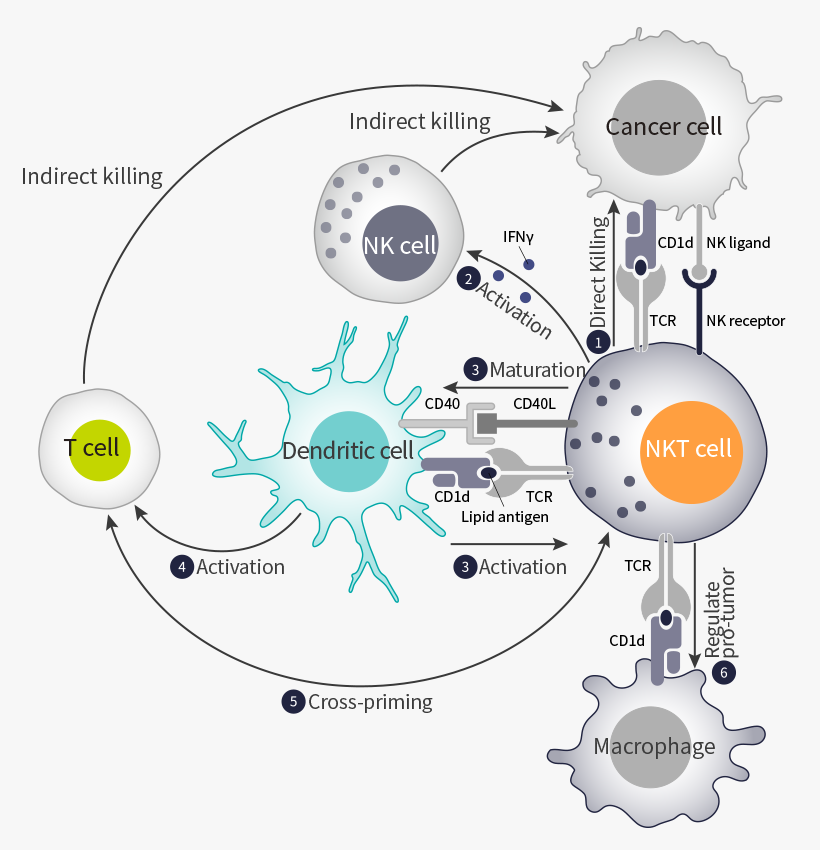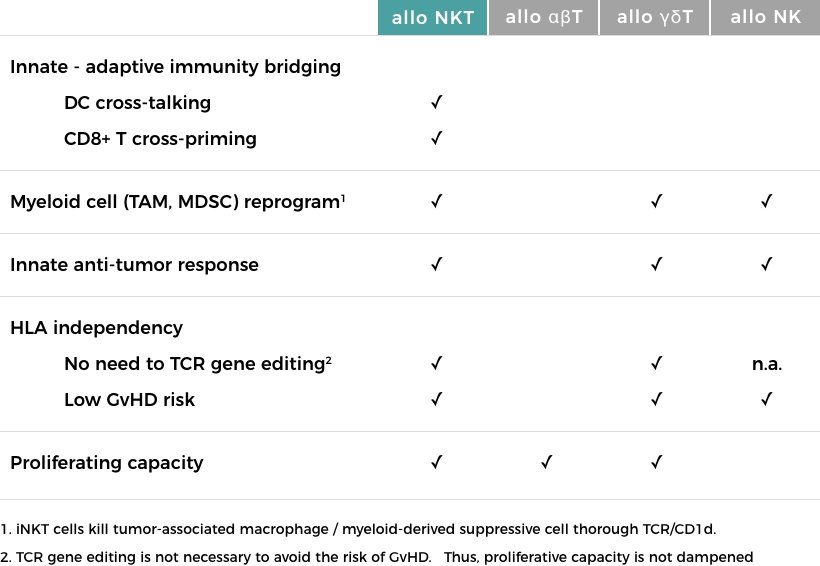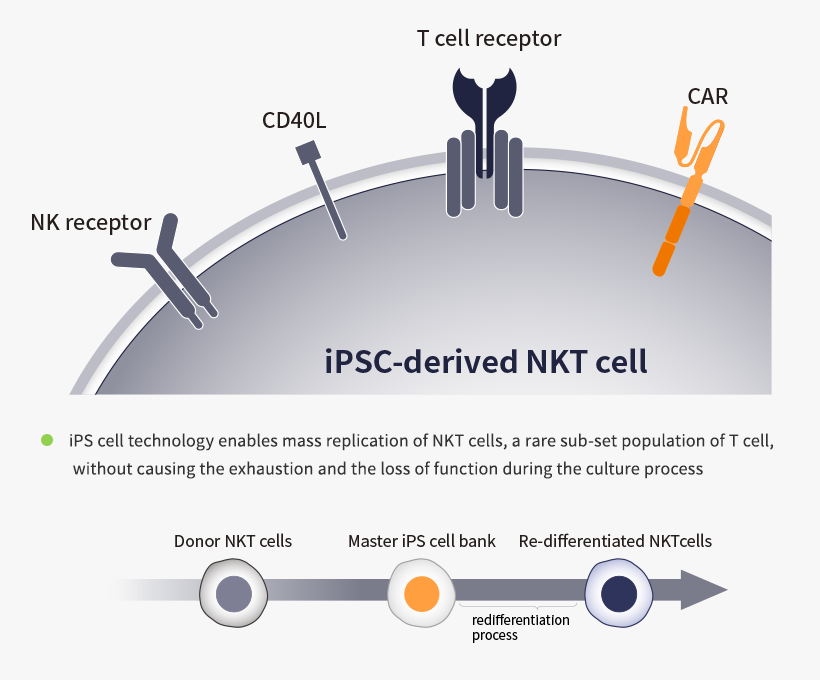About iPS-NKT
Natural killer T (NKT) cells are a type of "lymphocyte" and are called the "fourth lymphocyte" following T cells, B cells, and natural killer (NK) cells. They were discovered by Dr. Masaru Taniguchi (professor at Chiba University School of Medicine) in 1986, and have characteristics of both NK cells and T cells as the name implies.

The most noteworthy features of NKT cells are that they have the ability to kill cancer cells directly and at the same time exert anti-tumor effects indirectly by activating other immune cells.

However, only 0.01 to 0.1% of T cells are present in human peripheral blood, making it extremely difficult to extract NKT cells from the body, culture them, and expand them to the numbers needed for cancer therapy.
For this reason, the National Institute of Physical and Chemical Research ("RIKEN"), led by Akihiko Koseki (Deputy Director of the Research Center for Biomedical Sciences) planned to use iPS cell technology to solve this problem. Specifically, the research team made it possible to induce NKT cells (iPS-NKT cells) from iPS cells (NKT-iPS cells) in 2010. They succeeded in generating a large amount of only NKT cells with anti-tumor activity from iPS cells.
We are advancing the development of genetically engineered iPS-NKT cells with the goal of improving the efficacy, function, and kinetics of of iPS-NKT cells. As an example of our efforts, we have successfully induced the differentiation and proliferation of chimeric antigen receptor (CAR)-transduced iPS-NKT cells (CAR-iPSNKT) with enhanced anti-tumor activity. We are currently developing various types of genetically engineered cells.
